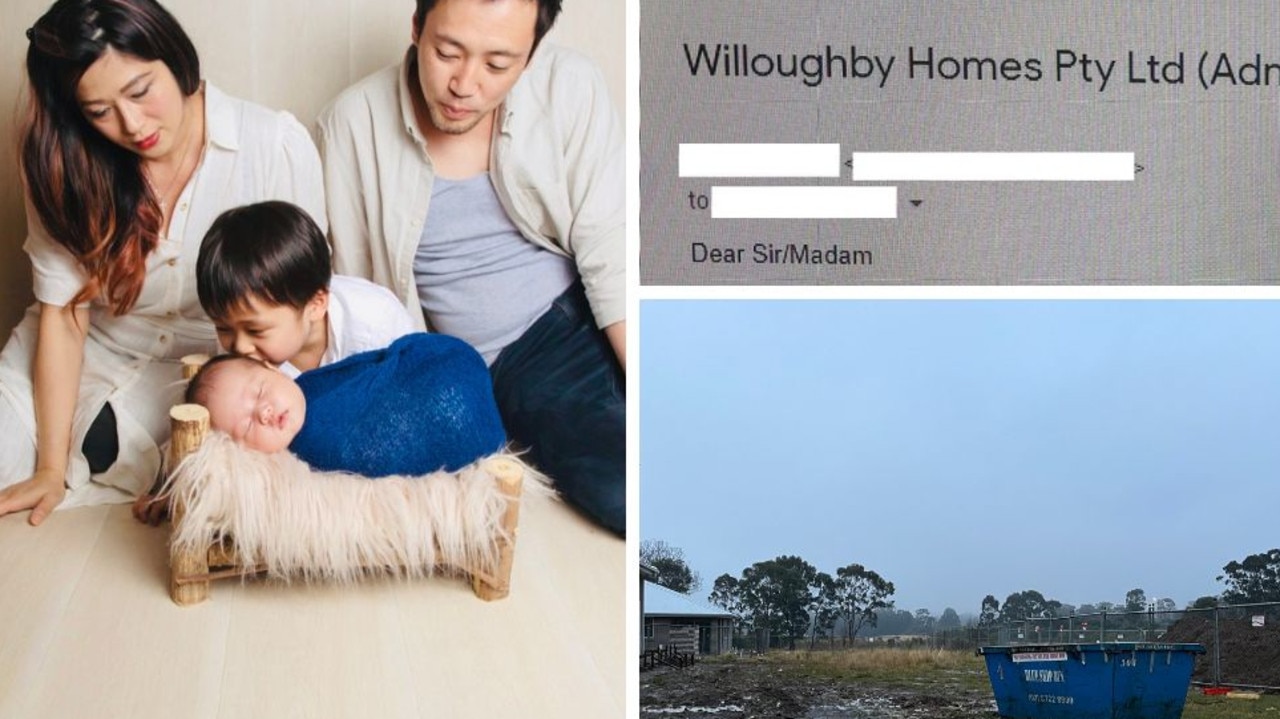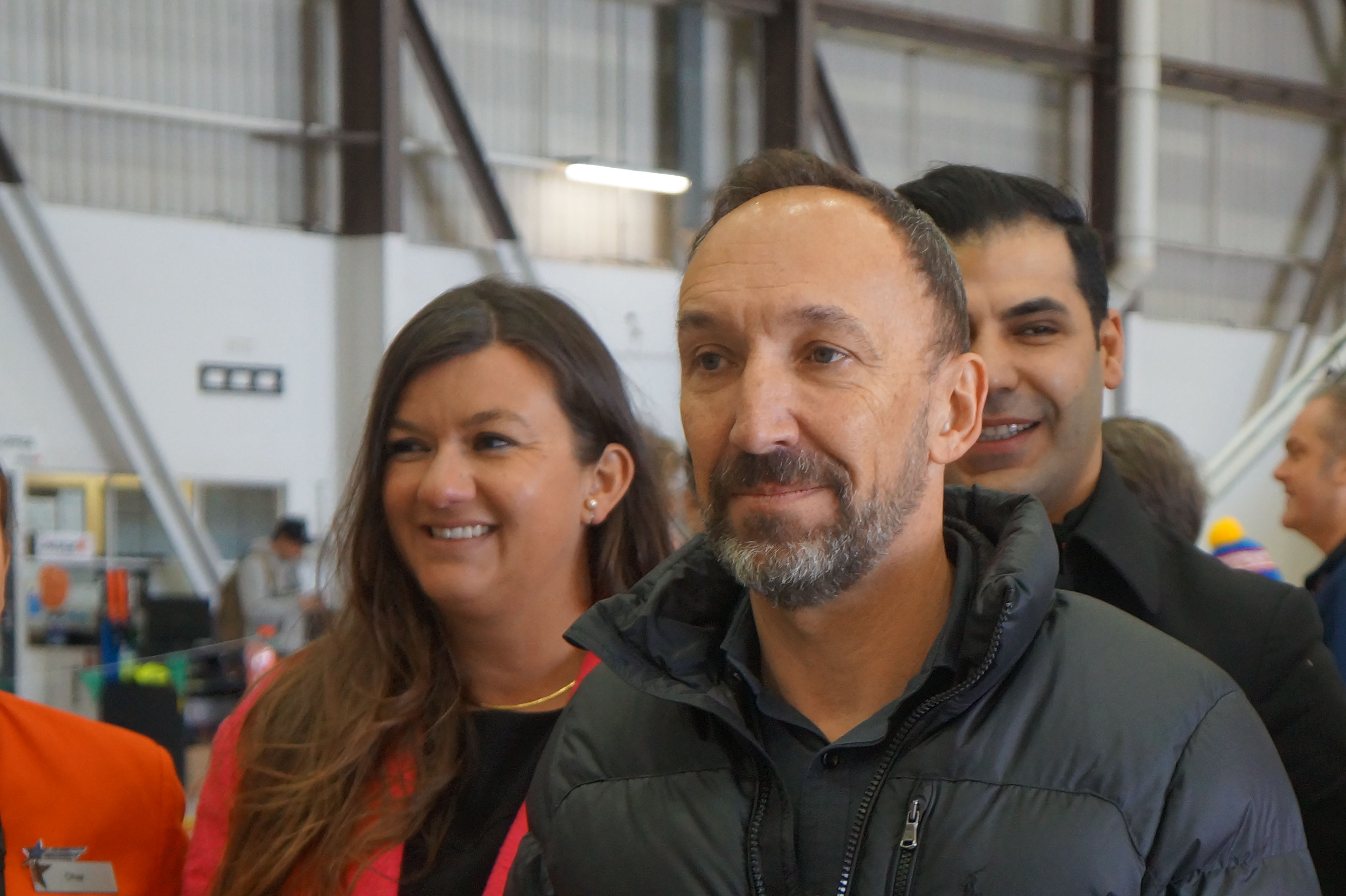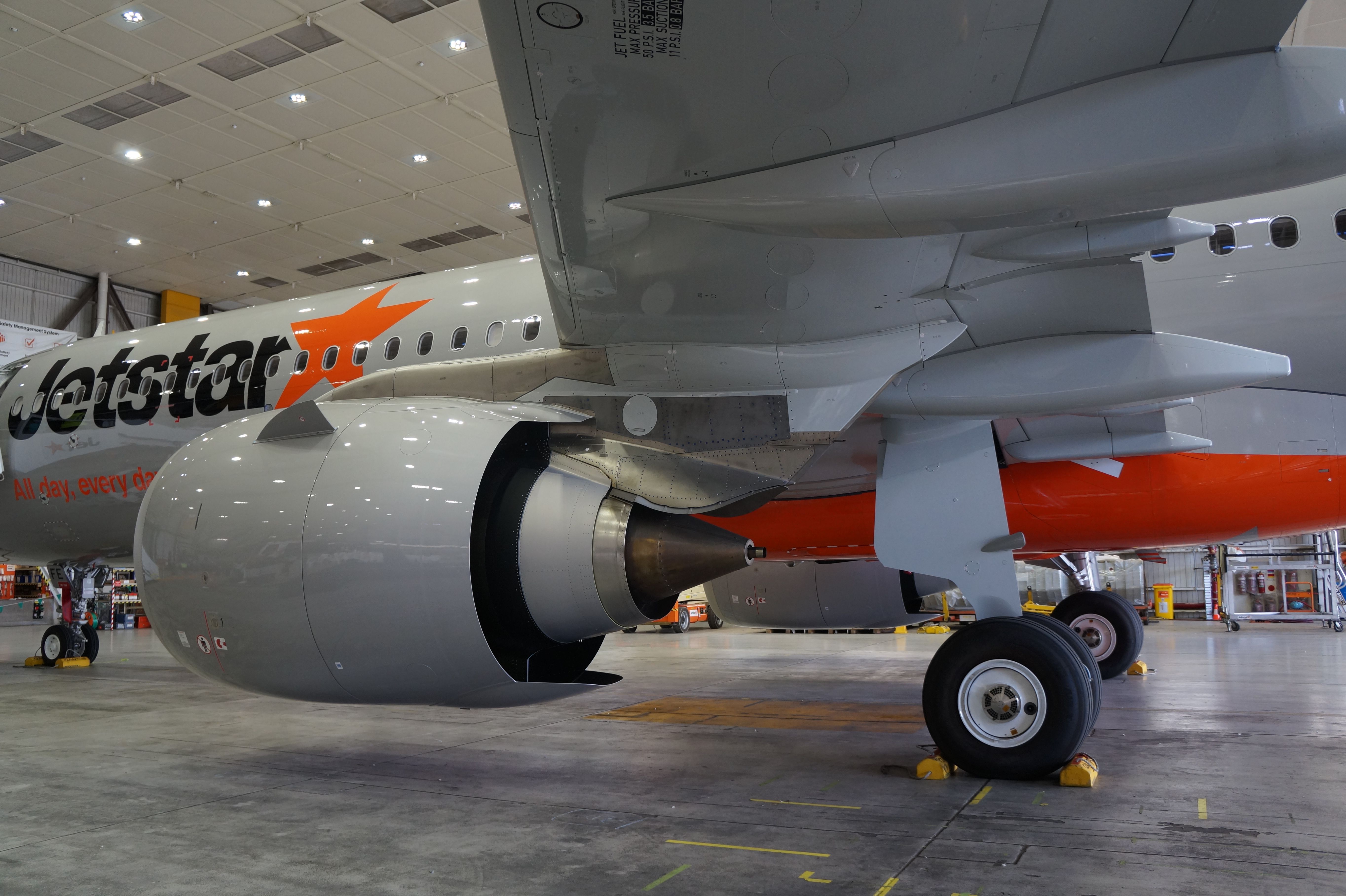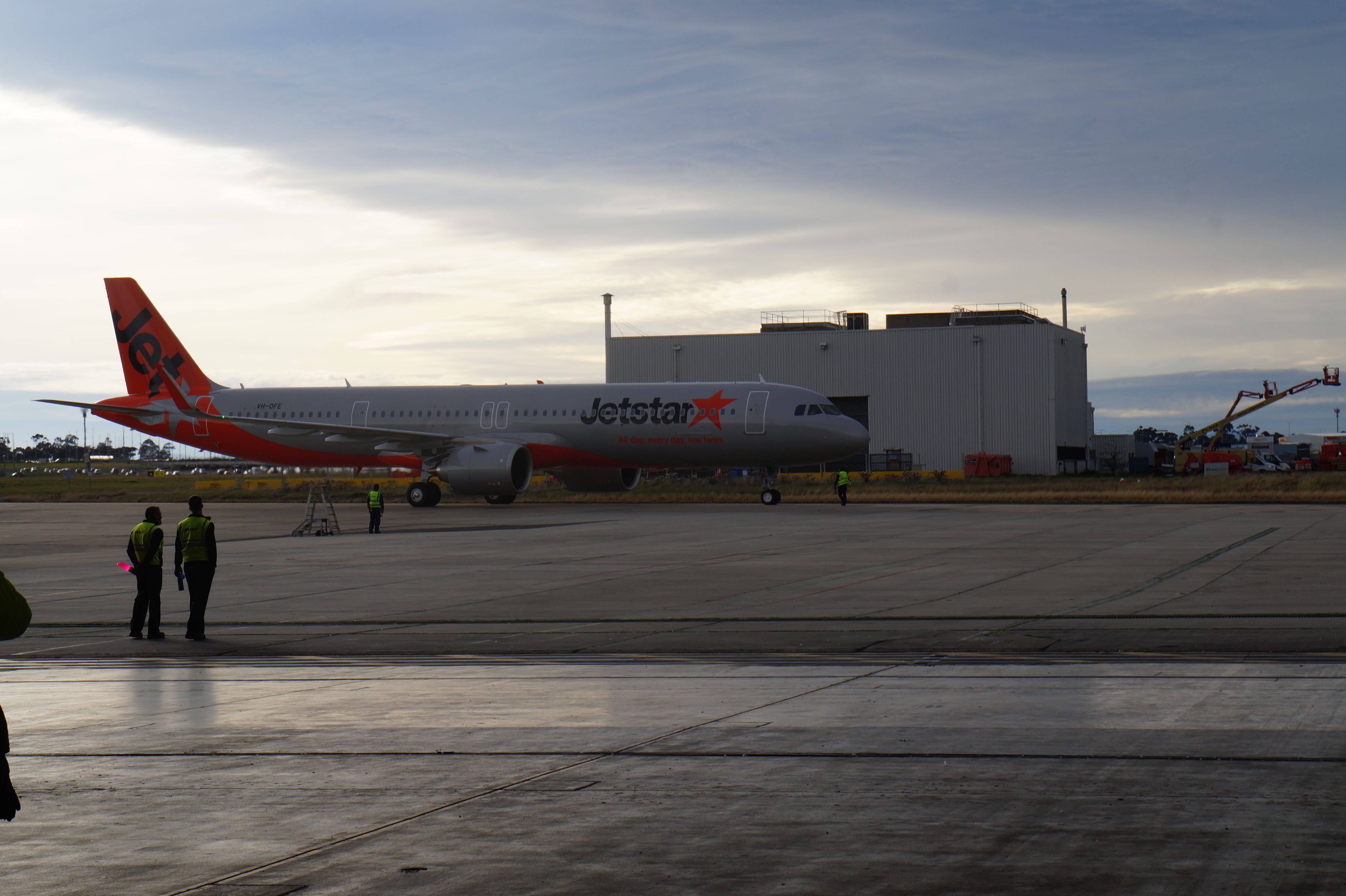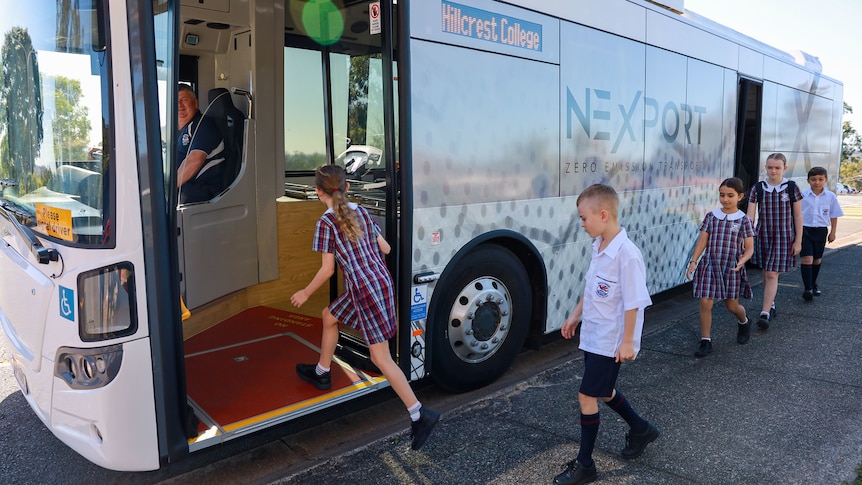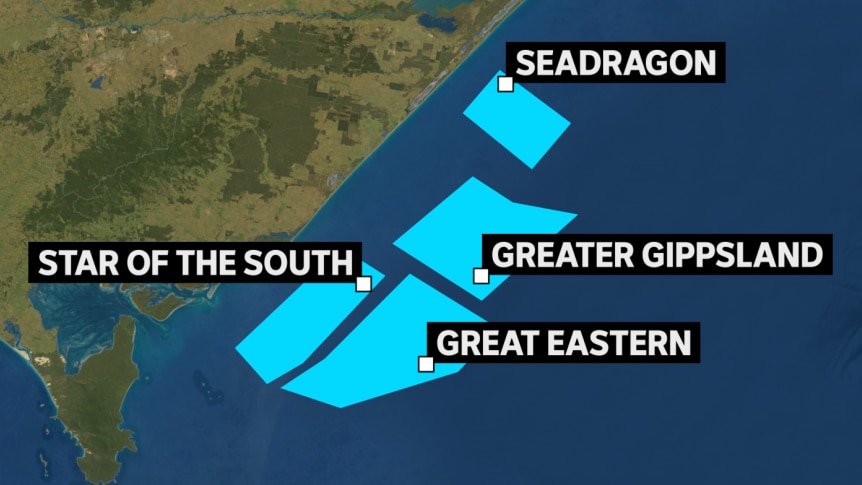A NSW building company has gone into voluntary administration, leaving at least 30 homes in limbo.
On Friday night, Sydney-based Willoughby Homes appointed external administrators.
The company collapsed just over 24 hours after NSW Fair Trading suspended its building license for failing to pay back debts ordered by a court.
Homeowners were informed via email late on Friday that David Mansfield and Jason Tracy of Deloitte’s turnaround and restructuring department had been appointed as joint administrators.
A sister company of Willoughby Homes, Project 360 Degrees, which was run by the same leadership team, is also part of the administration proceedings.
It comes after an extensive news.com.au investigation found the company has been non-functional for some time, with build sites stalling for as long as a year, the company’s home building insurance not being reinstated and finally, all its offices being cleared out and phone lines going straight to voicemail.
News.com.au understands around 30 homes were in the pipeline to be built and that at least 10 creditors are owed money. There are also around eight staff members who will be impacted, although it’s understood they had all ceased working at the company in the last several weeks. Staff had not been paid their superannuation in the months leading up to the collapse and one staff member is owed $53,000 in wages.
One creditor, Regno Trades, is owed $184,000 and has a court date hearing this Wednesday calling for Willoughby Homes to “be wound up in insolvency”.
At least 10 contractors are chasing Willoughby Homes over unpaid debts and more than a dozen customers have taken them to NCAT demanding their deposits or progress payments be returned as works have stalled.
Although Regno Trades has applied for Willoughby Homes to be placed into liquidation over a $184,310 payment, several other creditors have also taken legal action.
Five companies have applied for a default judgment over payments they claim is owed to them: H & R Interiors ($73,925), Prospa Advance Millers ($60,913), Scaffolding Australia ($22,794), ATF Services ($5,658) and Green Resources Material Australia ($6,503). ).
Elba Kitchens claimed to news.com.au that they were owed around $80,000 from Willoughby Homes.
Trueform Frames and Trusses claim they are waiting on an outstanding payment from Willoughby Homes of $24,684 from an invoice issued more than seven months ago while Finese Electrical and Air Conditioning claims it is owed $4531 from jobs done in February.
News.com.au knows of two other suppliers owed money.
It’s understood these creditors have not yet been contacted about the company’s voluntary administration.
News.com.au has contacted the administrators for comment.
Do you know more or have a similar story? Continue the conversation | [email protected]
The NSW Civil and Administrative Tribunal (NCAT) ordered Willoughby Homes to pay back $76,837 to a customer on June 8 and then last week, on July 21, another homeowner was also awarded $38,456, payable immediately.
Both debts were never paid, prompting the building license of Willoughby Homes to be suspended on Thursday.
Two employees who quit several months are also owed thousands in unpaid superannuation in what they said was a sign that the company was on the brink of collapse.
Xavier* worked in the sales department of Willoughby Homes for more than a year before he was made redundant in February 2021. The father-of-three claims he is still yet to be paid $53,000 from his commission fees. To recover the money, he’s spent around $5,000 on lawyers although his latest legal letter from him has gone ignored for months.
He also learned he was owed about $7000 in unpaid superannuation from Willoughby Homes.
Another staff member, Eric*, was owed about $5000 in super and had to get tax authorities to intercede on his behalf to recover his cash.
In June, news.com.au flagged that Willoughby Homes was on its last legs as some customers watched their dream home languish for months in the final stages of the project.
Several other aspiring homeowners forked out tens of thousands in a deposit as long ago as 2020 and to date, nothing has been done on their empty site.
News.com.au also knows of at least two customers who signed a contract with Willoughby Homes when the company was not able to enter into any new contracts.
NSW insurer iCare had not reinstated Willoughby Homes’ Home Builders Compensation Fund (HBCF) since April 2021, with the state body rejecting multiple applications, it confirmed to news.com.au.
That means the construction firm could not begin any new projects that required HBCF — so any project costing more than $20,000.
A NSW Fair Trading spokesperson told news.com.au that “It is a breach of the Home Building Act for a builder to enter into a contract to complete residential building work above $20,000 without HBCF insurance”.
Mum-of-three Marice Hartono and her husband, from North Ryde, gave out $38,000 to the builder as a deposit while Greg Denton and his wife paid $22,000 for a Central Coast home.
Both customers are not insured as they signed after Willoughby Homes’ HBCF had not been renewed and are not entitled to any compensation from the fund.
Ms Hartono told news.com.au she was “devastated” to hear the news that the company had gone bust as it’s left so many “unanswered questions” about what this means for her deposit and her plans of a dream home.
Since June, NSW Fair Trading has been actively investigating Willoughby Homes, with the government department telling news.com.au “The investigation into Willoughby Homes Pty Ltd is ongoing and no comment can be made at this time.
“NSW Fair Trading encourages anyone who has contracted with this trader to call 13 32 20.”
On Thursday, the entity used its powers against Willoughby Homes to suspend its license, effectively stopping the company’s ability to trade at all.
NSW Fair Trading took the drastic action of using Section 42A of the Home Building Act 1989, which allowed them to “automatically suspend a contractor license where the holder fails to comply with an order by a court or the NSW Civil and Administrative Tribunal (NCAT) to pay money for a building claim by the due date”.
Not long after, administrators were appointed to the struggling company.
Customers have been left reeling over the long months of waiting as the company floundered.
Cherry Cobrador-Wong, 33, and her husband Logan Wong, 35, from Sydney’s west, who recently had a baby, are behind in mortgage and rent because they claim their house has been left untouched since November when it was nearing its final stages.
“I’m crying all the time. I’m emotionally saddened and destroyed,” she previously told news.com.au.
Saif Nabi and his wife Hanniya as well as their two-year-old son have also been left in the lurch.
“One and a half years into it and we’re not closer, it’s just an empty lot of land,” Mr Nabi lamented.
At first the Nabi family were ecstatic about building their dream home in Box Hill, forking out $18,000 in an initial deposit.
But as the months passed by, Mr Nabi said the situation turned “into a nightmare” and he called to mutually end the contract.
“Since then it’s just been complete radio silence,” he said.
Sarah Little and Nikki Young are two more impacted homeowners who forked out $29,000 as a deposit but have yet to see a single worker set foot on their vacant lot.
The pair of paramedics signed with Willoughby Homes in March last year for a $291,000 four-bedroom, two-bathroom home in Menangle Park, in Sydney’s south west.
“It’s taken a pretty big toll on our mental health and we’ve gone from being pretty financially stable to now having to really consider if we can even afford the home we dreamed of.”
*Names withheld over privacy concerns
.
